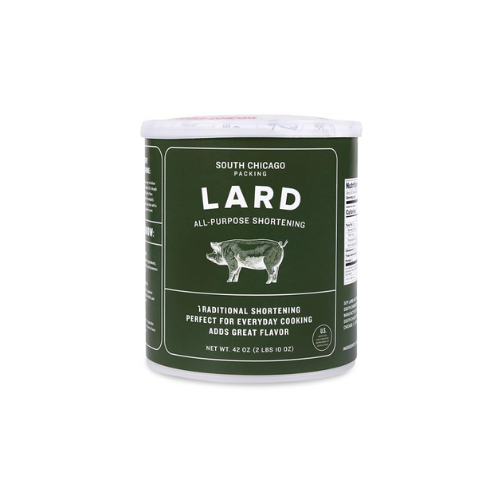Why Am I So Tired on Carnivore Diet?
Understanding Fatigue Factors
Embarking on the carnivore diet often means a significant shift in eating habits, as it involves consuming exclusively animal products and eliminating plant-based foods. This diet is considered by some to be a method for simplifying eating and focusing on nutrient-dense foods. It is known for potentially aiding in weight loss and reducing inflammation for some individuals. However, as with any dramatic dietary change, there can be an adjustment period. During this transition, individuals may experience increased fatigue, a phenomenon that can stem from a variety of nutritional and biological factors.
One common reason for feeling tired on the carnivore diet is the body's adaptation to a different source of energy. Typically, the body relies on carbohydrates from plant foods for quick energy. When the diet is restricted to animal products, the body must become efficient at using fat for energy, a state known as being 'fat-adapted.' This transitional phase can lead to a feeling of fatigue as the metabolism adjusts. Additionally, the diet's strict nature can result in an electrolyte imbalance, particularly if adequate attention is not given to consuming sources of essential minerals.
Addressing fatigue on the carnivore diet may involve ensuring a sufficient intake of fat for energy and maintaining a balance of electrolytes through consumption of mineral-rich foods or supplements. The inclusion of high-fat animal products, such as fatty cuts of meat, and paying attention to the body's signals for salt and other minerals can help in mitigating tiredness. It is also important for individuals on this diet to monitor their overall health and nutritional status, consulting with a healthcare provider to tailor their approach for optimal well-being.
Understanding the Carnivore Diet
The Carnivore Diet emphasizes a menu exclusively comprising animal products, showcasing a focus on high-intake of meats and fats, while excluding plant-based foods.
Core Principles and Foods
The Carnivore Diet stands on the premise of consuming animal products exclusively. Proponents believe in its potential to provide all essential nutrients without the need for plant-based foods, which are completely omitted. The diet advocates for eating:
Meats: Including all types of beef, pork, lamb, and chicken
Fish: Both fatty and lean varieties, such as salmon and white fish
Animal fats: Predominantly sourced from the food itself or added as butter or lard
Eggs: Valued for their protein and versatility
Dairy: Particularly high-fat products like cheese
When it comes to getting the best deals, buying ghee or lard online is the way to go!
Popular Carnivore Foods
A typical menu on the Carnivore Diet consists of:
Breakfast: Scrambled eggs with bacon or steak
Lunch: Chicken breasts with melted cheese or a salmon fillet
Dinner: Lamb chops, pork loin, or organ meats such as liver
This diet prioritizes foods that are rich in protein and fats, which are consumed at each meal.
Dietary Restrictions and Omissions
While the focus is on protein and fat intake, the Carnivore Diet distinctly excludes:
Grains
Fruits
Vegetables
All sources of fiber and carbohydrates
This omission extends to processed foods and any plant-derived food products, highlighting an absence of dietary fiber and carbohydrates.
Nutritional Content of the Diet
The Carnivore Diet focuses on consuming animal products which affects the intake of macronutrients and micronutrients. It predominantly includes high levels of fats and proteins while generally excluding fiber and carbohydrates.
Fats and Protein Focus
The Carnivore Diet provides ample amounts of fats and proteins, as these are the primary macronutrients found in animal products. Fats are crucial for energy, while proteins are essential for muscle repair and growth. These macronutrients can support a person's metabolic demands, especially when the body becomes fat-adapted. However, different animal foods contain varying levels of saturated and polyunsaturated fats, which can influence energy levels.
Vitamin and Mineral Intake
Animal foods are rich in certain vitamins and minerals, notably vitamin B12, iron, and zinc, which are vital for energy production and immune function. Organ meats, in particular, are nutrient-dense and can provide a significant amount of these micronutrients. Nevertheless, the diet may lack some vitamins and minerals typically found in fruits and vegetables, such as vitamin C and potassium, potentially leading to nutritional gaps.
Lack of Fiber and Carbs
A notable absence in the Carnivore Diet is dietary fiber and carbohydrates. Fiber, found in plant-based foods, is critical for gut health and regular bowel movements. Carbohydrates are the body's preferred energy source, and their absence might lead to initial feelings of fatigue as the body adjusts to using fats for fuel instead. It's important to monitor one's own digestive and energy response when eliminating dietary fiber and carbs.
If you're looking for fiber supplement, buying it online is your best bet!
Physical Health Impacts
The carnivore diet, by significantly altering macro and micronutrient intake, has various implications for physical health. Notably, it impacts weight loss potentials, effects on blood markers, and changes to the digestive system.
Weight Loss Potentials
Individuals on the carnivore diet often experience weight loss due to a reduction in carbohydrate intake, leading to a decrease in body weight. The high-protein diet can increase satiety and reduce overall calorie consumption, contributing to weight loss. However, an exclusive focus on animal products can result in a lack of dietary fiber.
Effects on Blood Markers
The carnivore diet, rich in protein and fat, can influence several blood markers. Cholesterol levels may fluctuate as the diet contains high levels of saturated fats. The risk of heart disease, associated with high cholesterol, is contentious; some studies suggest an increase, while others see no significant change. Individuals with diabetes may observe a drop in blood sugar levels due to the absence of carbohydrates, which can impact blood pressure and inflammation, potentially offering benefits to metabolic health.
Digestive System Changes
Switching to a carnivore diet can lead to notable changes in the digestive system. The absence of fibrous foods may cause constipation; however, some individuals report a relief from inflammatory bowel symptoms. It's important to monitor for signs of nutrient deficiencies or excesses, as long-term effects on the colon and risk of conditions like colon cancer remain under-researched.
Mental and Emotional Well-being
When a person transitions to a carnivore diet, changes in mental and emotional well-being, such as mood fluctuations and stress levels, may be experienced. The diet's impact on cognitive function and anxiety is a crucial consideration.
Mood and Cognitive Function
The carnivore diet, rich in fats and devoid of carbohydrates, is often associated with significant alterations in energy levels, which can, in turn, influence one’s mood and cognitive function. One may experience periods of heightened clarity and focus, likely due to the absence of sugar-induced fluctuations in blood glucose levels. However, initial fatigue as the body adjusts to using fat for fuel could negatively impact cognitive sharpness and mood stability in the short term.
Energy: Gradual stabilization post adaptation period.
Cognitive Function: Potential for increased focus once adapted.
Stress and Anxiety Levels
Adherents of the carnivore diet may report a reduction in symptoms of anxiety and stress, a point that could be linked to the elimination of stimulants like caffeine and sugar from their diet. Yet, it is also plausible that the significant dietary shift and concern for nutrient adequacy might initially elevate stress levels and anxiety. Long-term effects on stress are still under research, and individual responses to the diet vary.
Anxiety: Possible initial increase due to dietary changes; reduction reported by some post adaptation.
Stress: Changes in diet can alter stress responses, highlighting the need for personalized dietary approaches.
Common Challenges and How to Overcome Them
When adopting the carnivore diet, individuals often encounter several obstacles that test their resolve and adaptation to this lifestyle. Understanding these challenges and the strategies to overcome them is crucial for sustained adherence and success.
Dealing with Cravings and Temptation
Cravings and temptation are significant hurdles on the carnivore diet. Consumption of exclusively animal products restricts intake of carbohydrates, which may lead to increased cravings, especially for sugars.
Managing Cravings:
Increase Fat Intake: A balance of fats and proteins helps in reducing cravings. Add sources like butter, beef tallow, or fatty cuts of meat to aid satiety.
Hydrate: Often, thirst can be mistaken for hunger. Drinking plenty of water throughout the day can help alleviate this type of craving.
Managing Initial Side Effects
Initial side effects like diarrhea, headaches, and fatigue may occur as the body transitions to the carnivore diet. These are typically temporary and can be handled with some dietary adjustments.
Side Effects Management:
Diarrhea: Tweaking the fat-to-protein ratio can often mitigate this. Opt for leaner cuts of meat initially, gradually increasing fat intake.
Headaches and Fatigue: These might be a result of electrolyte imbalance. Ensuring adequate intake of sodium, potassium, and magnesium could help.
Adapting to Social and Lifestyle Changes
Lifestyle changes present another challenge, as social situations often revolve around food choices that are not carnivore diet-friendly. Also, an individual might experience depression or stress due to these drastic changes.
Navigating Social Settings:
Plan Ahead: Bring your own food to social events or scout restaurant menus beforehand to identify suitable options.
Communicate: Be open with friends and family about your dietary restrictions to set expectations and reduce social pressure.
Lifestyle Adaptation:
Routine: Establish a consistent meal routine to help your body and social circle adapt to your new diet.
Support: Seek support groups, either online or locally, to share experiences, get advice, and reinforce dedication to the dietary changes.
Long-Term Considerations
When considering the carnivore diet, one cannot overlook the importance of its long-term sustainability and potential health-related side effects. This necessitates a careful evaluation of the diet's adaptability over time and the risks it may pose to one's health.
Sustainability and Adaptability
The carnivore diet requires individuals to consume primarily animal products, raising questions about its long-term sustainability for an individual's lifestyle. One must consider:
Diversity of Nutrients: A diet solely comprising animal products may lack certain micronutrients, making supplementation or strategic food choices essential.
Practicality: This restrictive diet may prove challenging to maintain due to social and cultural eating practices.
Potential Risks and Side Effects
Engaging with a carnivore diet over a prolonged period can bring potential health risks and side effects. These include:
Nutrient Deficiencies: Exclusively eating meat, fish, and eggs might result in a lack of fiber and some vitamins, which are crucial for long-term health.
Chronic Health Concerns: Research suggests a possible association between high meat consumption and conditions such as heart disease. There is also the question of impact on conditions like arthritis, though some anecdotal reports suggest benefits.
Adaptation Period: Initially, the body may experience fatigue as it adjusts to using fat for energy instead of carbohydrates.
One should weigh these considerations carefully, alongside any perceived health benefits, to make an informed decision about the carnivore diet's role in a balanced, healthy lifestyle.
Tips for Success on the Carnivore Diet
The transition to a carnivore diet can be challenging, but incorporating certain strategies can ensure a smoother adaptation and help mitigate fatigue. Here are targeted approaches to bolster energy levels and optimize health benefits on this diet.
Incorporating Variety and Balance
To ensure one receives a broad spectrum of nutrients, it's important to vary the types of animal products consumed. This can include:
Red meats: A source of iron and B vitamins.
Poultry: Provides essential proteins.
Fish: Rich in Omega-3 fatty acids.
Eggs: Offer a balance of fats and proteins.
Organ meats: High in vitamins and minerals.
Adding a diverse range of meats can help one avoid nutritional deficiencies that might contribute to fatigue.
Hydration and Salt Intake
Maintaining proper hydration is crucial, as the body may lose more water on a high-protein diet. Individuals should aim to:
Drink water: Ideally consuming at least 2 liters per day.
Consume bone broth: Provides both hydration and electrolytes.
Incorporate electrolytes: Ensuring adequate intake of salt to facilitate water retention and balance electrolytes.
Tea and coffee are also permissible for hydration, but one must ensure they do not disrupt electrolyte balance or hydration levels.
Exercise and Physical Activity
Regular physical activity can increase energy levels and improve overall well-being. However, the key is to:
Start slow: One might need to reduce intensity as the body adapts to the diet.
Gradually increase: As energy levels stabilize, slowly increment workout intensity.
Listen to the body: Pay attention to fatigue levels and adjust workouts accordingly.
Combining these specific strategies should help individuals better navigate the fatigue often experienced during the initial phase of the carnivore diet.
Understanding Food Quality and Choices
When adopting a carnivore diet, the quality of meats and the balance of nutrients are paramount to manage energy levels effectively.
Selecting High-Quality Meats
Individuals should focus on grass-fed, pasture-raised varieties of beef and pork, as these are often higher in nutrients compared to their grain-fed counterparts. Choosing grass-fed beef not only ensures a more favorable profile of omega-3 to omega-6 fatty acids but also potentially better overall nutrition content.
Beef: Preferably grass-fed for its higher omega-3 content.
Pork: Look for pasture-raised to avoid added hormones and antibiotics.
Balance of Animal Fats and Proteins
The right balance between animal fats and proteins is critical to fuel the body. Animal fats are essential for energy, while adequate protein intake supports muscle repair and growth. Dieters should adjust their fat intake and protein intake based on their energy needs and personal health goals.
Animal Fats: Necessary for energy; sources include beef tallow and butter.
Proteins: Crucial for body repair; lean meats like chicken and turkey are excellent options.
I highly recommend purchasing tallow online for a convenient shopping experience!
Inclusion of Organ Meats and Seafood
Incorporating organ meats and a variety of seafood like salmon, tuna, mackerel, and crab ensures a diet rich in essential vitamins and minerals. Organ meats are nutrient-dense, and seafood provides crucial omega-3 fatty acids.
Organ Meats: Include liver, heart, and kidney for a range of vitamins and minerals.
Seafood: Opt for fatty fish such as salmon, mackerel, and tuna, plus shellfish like crab for additional nutrient benefits.
Common Misconceptions and Myths
Exploring the carnivore diet reveals several misconceptions particularly concerning fat, cholesterol, and protein intake, as well as the body's energy utilization in the form of ketosis. These myths often contribute to misunderstandings about why individuals may feel tired when adopting this dietary approach.
Myths About Fat and Cholesterol
One prevailing myth is that high intake of saturated fat and cholesterol on the carnivore diet is detrimental to heart health. However, emerging research challenges this belief, indicating that the body regulates cholesterol levels and that dietary cholesterol has a smaller impact on blood cholesterol than once thought. Even though fat is a primary energy source on this diet, it's crucial for individuals to monitor their response to such dietary changes.
Saturated Fat: Often feared for its potential to raise LDL cholesterol, this type of fat is abundant in animal products. Current studies suggest that saturated fats may not be as harmful as once believed and may not directly correlate with heart disease.
Cholesterol: Consumed through animal products, dietary cholesterol has been seen historically as a risk factor for heart disease. Nonetheless, human physiology can adapt cholesterol synthesis in response to dietary intake.
Protein Overconsumption Concerns
A second misconception involves the risk of overconsuming protein, potentially leading to kidney strain and a constant state of gluconeogenesis, which might contribute to fatigue. However, the body often adjusts to high-protein diets, and concerns regarding kidney damage from high-protein intake lack substantial evidence for individuals with healthy kidneys.
Protein Intake: Adequate, but not excessive, protein is essential for muscle maintenance and overall health. Individuals need to balance protein with fat to ensure they aren't consuming protein to the point of displacing other vital nutrients.
Carnivore Diet and Ketosis
The final common myth is related to the body entering a state of ketosis, which is often mistaken as unhealthy or unnatural. On the contrary, ketosis reflects a natural metabolic state where the body burns fat for fuel in the absence of carbohydrates.
Ketosis: It is sometimes misinterpreted as a stress response, yet it is a natural process that can provide sustained energy once the body adapts, which can take several weeks. During the adaptation phase, individuals may experience increased levels of fatigue.
By demystifying these concepts, one can better understand how the carnivore diet might affect energy levels and overall health, and the importance of giving the body time to adapt to such an elemental change in nutrient intake.
Research and Scientific Evidence
This section examines the scientific evidence surrounding the outcomes of the carnivore diet and how it compares to other dietary patterns.
Studies on Health Outcomes
Research indicates that individuals on a carnivore diet may experience a range of health transformations. In some reports, health benefits include improvement in conditions such as diabetes, obesity, and autoimmune diseases. An observational study reflected in the search results mentions adults on this diet reporting few adverse effects and instead noting benefits and high levels of satisfaction. However, it's crucial to understand that the reported cardiovascular risk factors were variably affected, suggesting that individual responses to this diet can differ significantly.
Comparison with Other Diets
Nutrition research often emphasizes dietary variety to meet human nutritional needs, contrasting with the carnivore diet's approach. When comparing an all-meat diet to more balanced diets recommended in national guidelines, one finds a stark difference in nutrient sources due to the absence of plant foods. The ketogenic nature of the carnivore diet, being high in fats and low in carbohydrates, is in sharp contrast to diets that include a mix of macronutrients from both plant and animal sources. Comparative studies would be necessary to provide a more complete understanding of how a solely animal-sourced diet stacks up against plant-inclusive diets over the long term.
Modifying the Diet for Individual Needs
When individuals find themselves feeling unusually tired on the carnivore diet, it may be time to consider making personalized adjustments. This involves tweaking the fat and protein balance, as well as strategically including supplementary foods to meet nutritional needs.
Adjusting Fat and Protein Ratios
Adjusting the ratios of fat to protein is crucial in addressing fatigue on the carnivore diet. Fat serves as a primary energy source, especially when carbohydrate intake is minimal. Individuals should ensure they consume enough fatty cuts of meat to sustain energy levels. On the other hand, protein is essential for muscle repair and can increase satiety. One may start with a 1:1 ratio of fat to protein (in grams) and adjust as necessary considering their own energy needs and responses.
Macronutrient Suggested Starting Ratios and Potential Adjustments
Fat
Suggested Starting Ratio: 1 part
Potential Adjustments: Increase if feeling low in energy
Protein
Suggested Starting Ratio: 1 part
Potential Adjustments: Adjust based on satiety and muscle maintenance
Inclusion of Supplementary Foods
While the core of a carnivore diet is animal products, some individuals may benefit from incorporating certain supplementary foods. Foods like eggs and fish provide essential nutrients such as omega-3 fatty acids and should be included in moderation for their nutritional value. Dietary variation through these additions can help combat potential deficiencies that might lead to fatigue.
List of Supplementary Foods:
Eggs: High in choline and complete proteins
Fish: Rich in omega-3 fatty acids for brain health and inflammation reduction
These modifications should be taken into consideration depending on one's individual needs and responses to the diet. Supplements may be necessary for some individuals to ensure adequate nutrient intake. Customization and nutritional adjustments are key for maintaining balance and supporting physical well-being on the carnivore diet.
Conclusion
Adhering to a carnivore diet can lead to periods of fatigue, particularly in the early stages as the body adjusts to a different source of energy. An individual may experience energy dips as their metabolism shifts from burning carbohydrates to fats. Health benefits like weight loss and reduced inflammation have been reported, but one should weigh these against potential nutritional challenges.
The carnivore diet eliminates plant-based foods, possibly leading to deficiencies unless carefully managed. It emphasizes nutritional wisdom, reminding individuals of the need to closely monitor their health and seek a balance of essential nutrients. Including a variety of animal products, such as fish and eggs, can help mitigate the risk of deficiencies.
Future research is crucial to truly understand the long-term implications of the carnivore diet on health. Current anecdotal evidence and individual experiences, while valuable, are not a substitute for comprehensive, peer-reviewed studies.
In the interim, it is recommended that individuals considering or currently on the carnivore diet:
Monitor their health regularly, seeking professional guidance.
Pay attention to their body's signals, and be prepared to adjust their diet as needed.
Incorporate a diverse range of animal products to ensure a broader spectrum of nutrients.
Navigating diet and nutrition requires an individual to be informed, cautious, and open to adapting their approach as more evidence becomes available.









